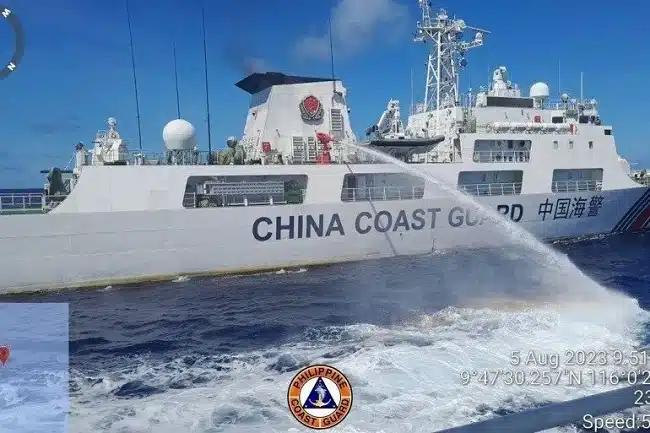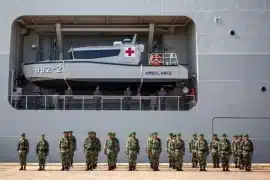In a rapidly evolving geopolitical landscape, the Philippines stands at a critical juncture in its history. Faced with escalating tensions in the South China Sea, the country is forging new alliances and embarking on a comprehensive naval modernization program. In this article, we delve into the Philippines’ Strategy to Counter China’s assertive behavior in the region. Against a backdrop of maritime disputes and unequal showdowns, the Philippines is navigating a path toward safeguarding its sovereignty and addressing global climate issues. Join us as we explore the nation’s determined pursuit of security and stability in the face of mounting challenges.
The Need for a Comprehensive Strategy
The Philippines recognizes the urgency of addressing the rising threat posed by China’s assertive actions in the South China Sea. Defense Secretary Gilbert Teodoro emphasized the need for a comprehensive strategy during a speech on September 10, 2023. He stated, “We will carry it out through a comprehensive re-strategization, along with forging alliances. It’s natural; even China has alliances, so we have to consider this. I’m giving them time to start re-horizoning and rethinking modernization.”

This comprehensive approach involves two crucial components: forging alliances with like-minded nations and modernizing the Philippines’ Navy and Coast Guard. The latter is particularly important as the Philippines currently faces the challenges of being outgunned and outnumbered by China in disputed waters.
Recent weeks have witnessed instances of Chinese Coast Guard ships harassing and intimidating Filipino boats during resupply missions to outposts in the Spratly Islands. These confrontations highlight the urgent need for the Philippines to bolster its maritime capabilities to prevent unequal showdowns with China.
Forging Alliances
In response to these challenges, the Philippines is actively pursuing strategic partnerships and alliances with nations that share its concerns. One significant move was the signing of a strategic partnership with Australia on September 8, 2023, in Manila. This partnership reflects a shared commitment to upholding international law and ensuring a free and open Indo-Pacific region.
U.S.-Philippines Relations
Additionally, the Philippines has strengthened its defense ties with the United States. President Ferdinand “Bongbong” Romualdez Marcos Jr. held talks with U.S. Vice President Kamala Harris during the 2023 Asian Summit in Jakarta. The U.S. has increased its military aid to the Philippines. Their regular joint military exercises, including live-fire drills at sea, have reinforced their commitment to mutual defense.
China’s Response
China has cautioned the Philippines against deepening ties with the United States, warning that such actions could exacerbate regional tensions. However, the Philippines views these partnerships as essential for safeguarding its sovereignty and territorial rights while maintaining stability and peace in the region.
Economic Considerations
Economically, the Philippines recognizes its dependency on Chinese imports. While the goal is to reduce this dependency strategically, the Philippines also acknowledges the potential socioeconomic impact of abruptly redirecting its imports. Therefore, the country aims to balance its economic and security interests.
Summary of “Philippines’ Strategy to Counter China”
The Philippines’ Strategy to Counter China in the South China Sea revolves around comprehensive re-strategization, forging alliances, and modernizing its naval capabilities. By strengthening its partnerships with nations that share its concerns and upgrading its military assets, the Philippines aims to protect its territorial integrity and contribute to regional stability in the face of increasing tensions in the South China Sea.







